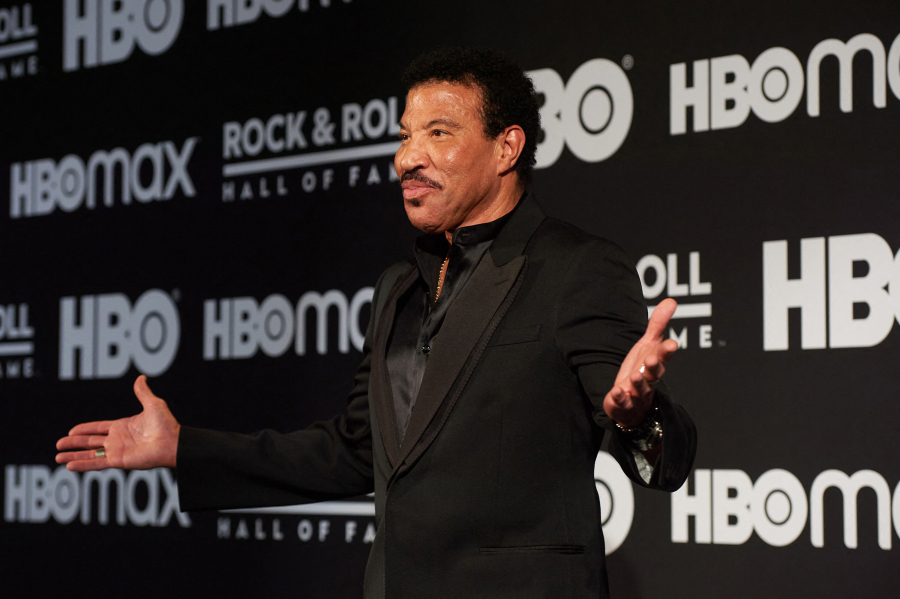Although he’s one of the most iconic artists to come out of Motown Records, Lionel Richie encountered racially related criticism early in his career.
The recent Rock & Roll Hall of Fame nominee opened up about his complicated transition from fronting the hit-making R&B/funk band The Commodores, to becoming a chart-topping solo success.
“It was really a great period in my life, but it was confusing,” the four-time Grammy winner revealed to People magazine for a cover story arriving on newsstands Friday.
For the special “Celebrating Black History Month” issue, Richie explained to editor-at-large Janine Rubenstein that his racial identity was questioned on the success of his crossover singles “Truly,” “Hello” and “All Night Long” in the early 1980s.
“Hey man, the music’s not Black enough. Lionel’s not Black enough. What’s a Black guy doing writing a waltz?” Richie recalled being told. “No one had ever questioned my Blackness before. Like, do you know who you’re talking to?”
While singing, playing keyboards and saxophone with The Commodores, Richie enjoyed success with ballads such as “Easy,” “Zoom,” “Sail On,” and the dance hits “Brick House,” “Lady (You Bring Me Up),” and “Too Hot ta Trot,” which have been longtime staples on Black radio stations.
As a solo singer, songwriter and producer, Richie became one of the biggest pop artists of the era delivering adult contemporary radio hits such as “Stuck On You,” “Penny Lover,” “Dancing on the Ceiling” and “Love Will Conquer All.”
In 1985, he won the Academy Award for best original song for “Say You, Say Me,” which was featured in the film “White Nights,” and also scored the song of the year Grammy Award for co-writing “We Are the World” with Michael Jackson in 1986.
The 72-year-old Tuskegee, Ala., native explained he grew up “around amazing people” near the HBCU Tuskegee University, which he also attended, describing it as a community comprising Black heroes and role models.
“William L. Dawson, who wrote the Negro Folk Symphony, would stop by the house,” he shared. “Alfred ‘Chief’ Anderson was one of the dads in the community. He’s the one who took Eleanor Roosevelt up in a plane to prove that Black folks could fly. They wanted us to be better. There was that saying, ‘Failure is not an option.’”
Because of that rarefied rearing, Richie refused to be pigeonholed and confined to one genre.
“I said, ‘I’m not trying to be the greatest Black writer of all time. I’m trying to be the greatest writer of all time that happens to be Black,’” the Motown superstar remarked. “I passed my goal a long time ago when someone said to me, ‘You have 40 years of records that will survive you.’”
100 million albums later, Richie is still going strong.
Currently serving as a judge on “American Idol,” he is the upcoming recipient of the Library of Congress’s coveted Gershwin Prize for Popular Song. In great company, he joins past recipients such as Willie Nelson, Paul McCartney, Billy Joel, Stevie Wonder, Carole King, Tony Bennett and Paul Simon.
“This is truly an honor of a lifetime, and I am so grateful … I am proud to be joining all the other previous artists, who I also admire and am a fan of their music,” Richie said.
Last week, he joined Dolly Parton, Eminem, Duran Duran and A Tribe Called Quest among this year’s first-time nominees for induction into the Rock & Roll Hall of Fame.
Fan voting for induction is now open and people can vote every day through April 29 at the website vote.rockhall.com/en/.



